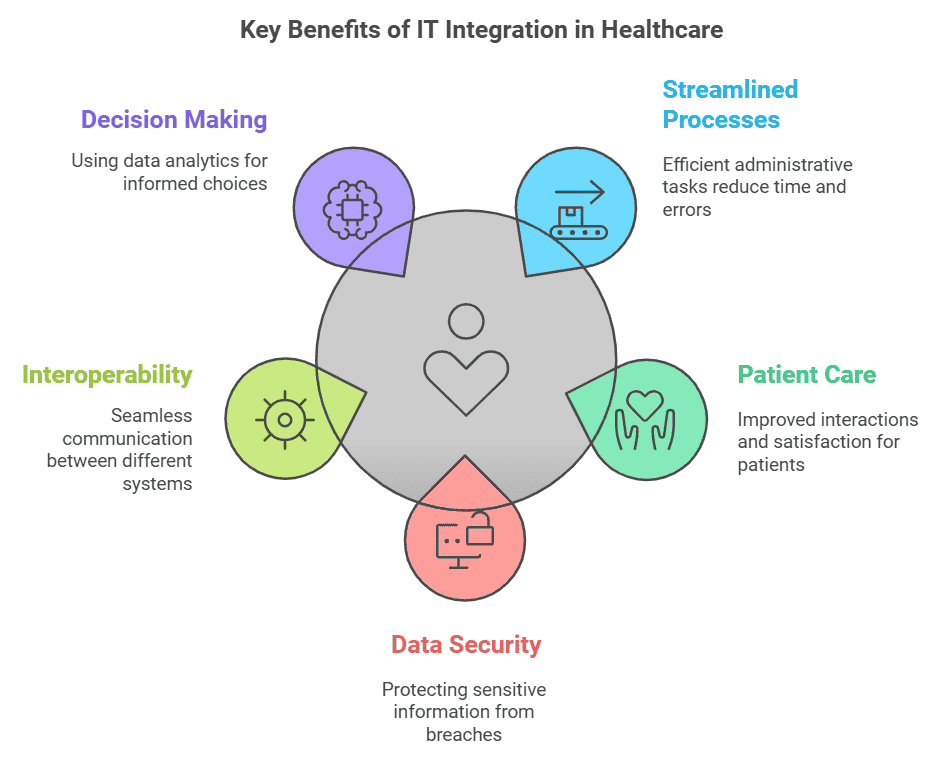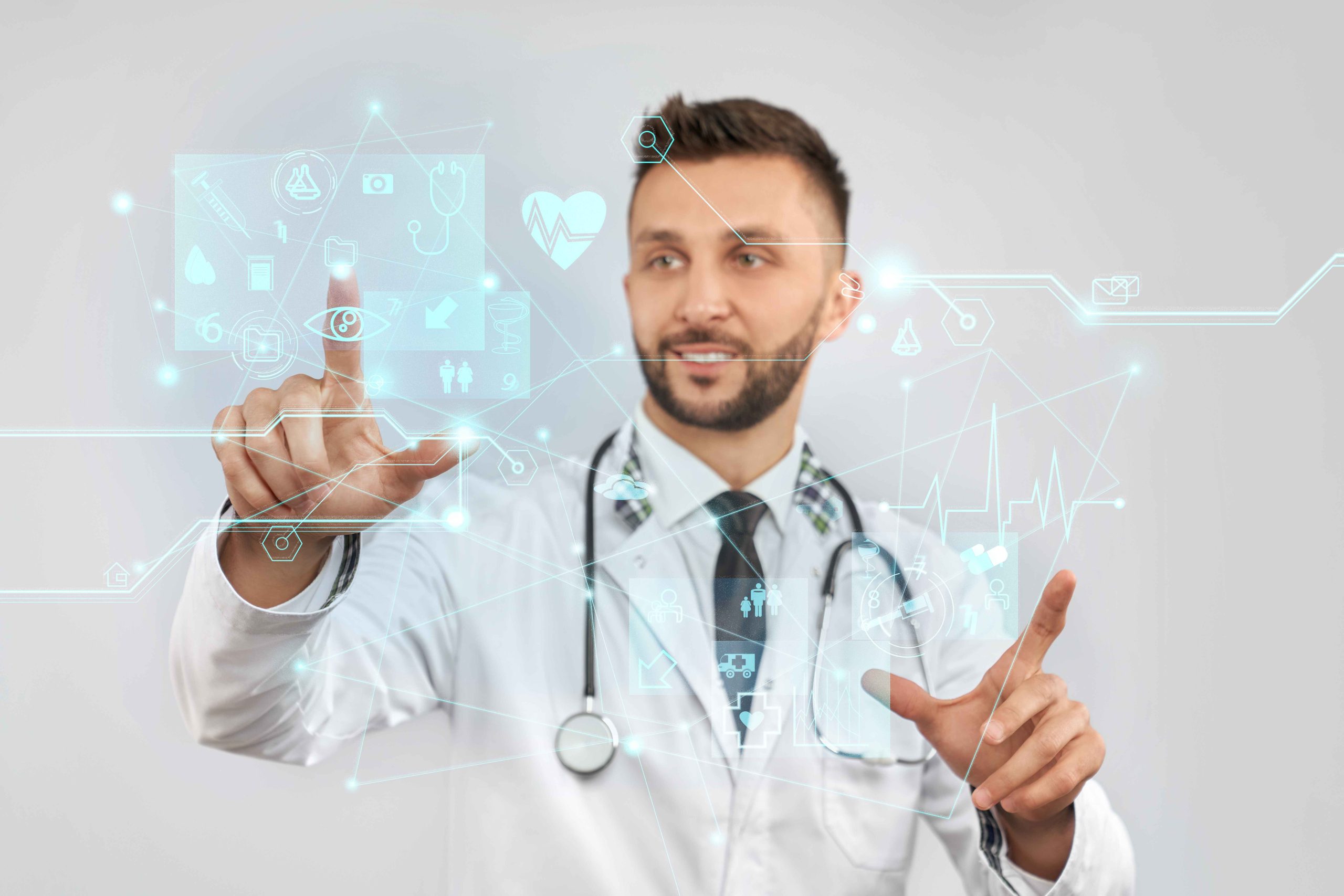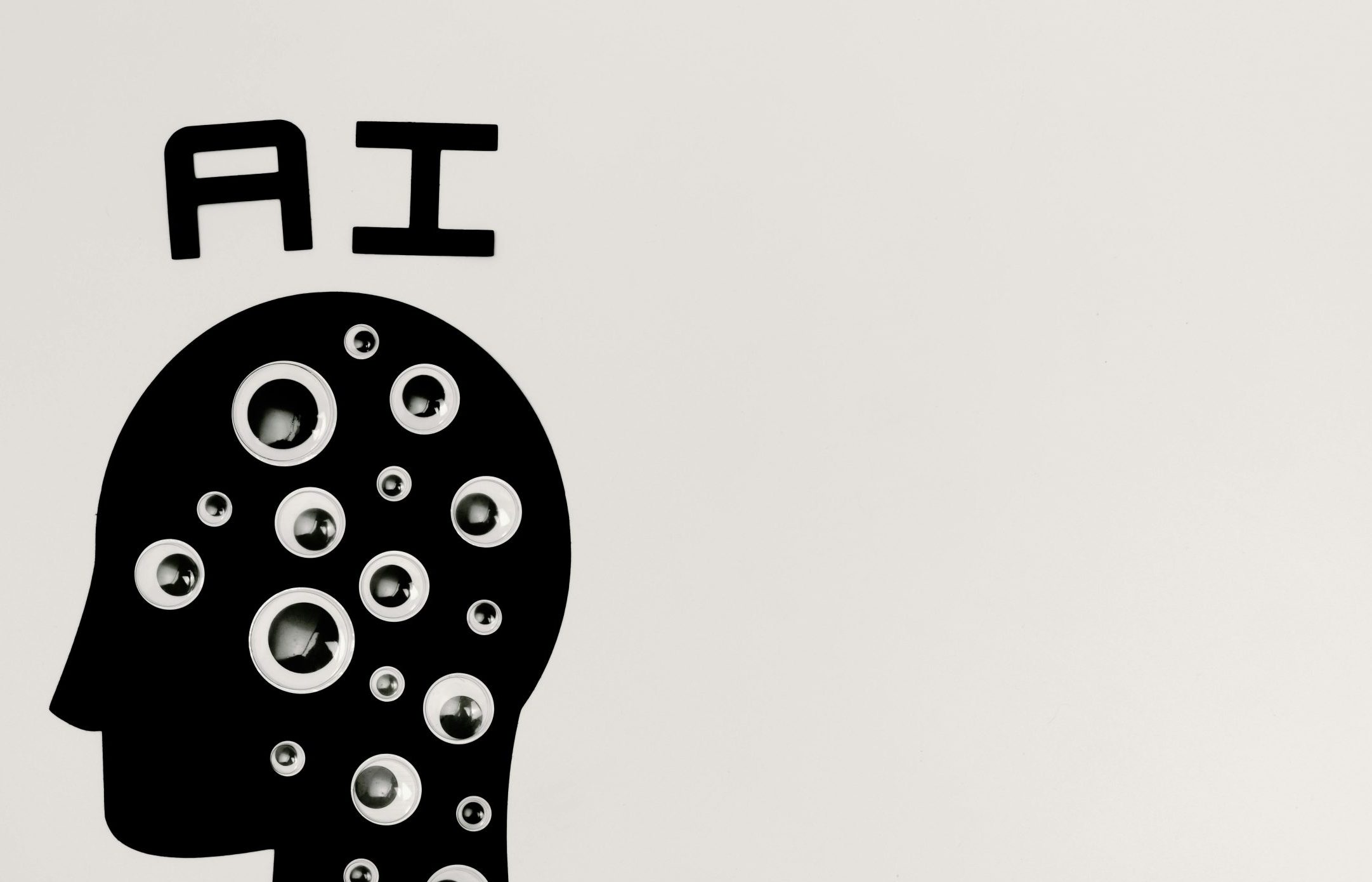In today’s rapidly evolving healthcare environment, staying ahead with technological advancements is no longer a luxury—it’s a necessity. For medical practices, integrating IT services into daily operations is essential for boosting efficiency, enhancing patient care, and streamlining workflows. As healthcare technology progresses, understanding the future of medical IT integration and how it can benefit various specialties is critical.
The Growing Need for IT Integration in Healthcare
With increasing demand for personalized patient care and data-driven decision-making, medical practices are pressured to adopt healthcare technology solutions that simplify complex processes. From managing patient records to enabling telemedicine technology, integrating IT into healthcare is transforming the landscape.
What exactly does IT integration mean for healthcare? Simply, it combines various healthcare technologies and systems to work seamlessly. This ensures that all departments—from general practitioners to specialized clinics—operate smoothly by sharing critical information and automating routine tasks.
Key Benefits of IT Integration for Medical Practices

1. Streamlined Administrative Processes
One of the most immediate advantages of IT integration is the automation of administrative tasks. Medical practices often face the challenge of managing time-consuming manual processes like scheduling, billing, and patient intake. These tasks can be automated with practice management software and electronic health records (EHR) systems, reducing errors and saving valuable time.
For example, integrated scheduling software allows practices to automatically notify patients of their appointments and easily manage rescheduling, reducing no-shows and optimizing appointment flow.
2. Enhanced Patient Care
Accurate and accessible patient information is essential for providing quality care. Integrated IT systems enable healthcare providers to access comprehensive patient histories, treatment plans, and lab results, regardless of the care provided. This interconnected approach leads to better diagnoses, personalized treatment, and improved patient outcomes.
Furthermore, telemedicine technology is revolutionizing patient care in mental health, dermatology, and primary care fields. Integrating telemedicine platforms with existing systems allows patient data to be seamlessly shared, ensuring continuity of care whether the patient is seen in person or virtually.
3. Improved Data Security
As the healthcare sector becomes increasingly digital, protecting patient data is more critical than ever. IT integration can enhance health information technology (HIT) by implementing advanced cybersecurity measures across all platforms. Encryption, multi-factor authentication, and routine system audits help secure sensitive patient information, reducing the risk of breaches and ensuring compliance with regulations like HIPAA.
4. Interoperability Across Specialties
A key challenge in healthcare has been the lack of interoperability—the ability for different systems to communicate effectively. Without IT integration, specialists in fields like cardiology, oncology, or orthopedics may struggle to access a patient’s full medical history in real-time. Integrated systems resolve this issue by enabling seamless data sharing between specialists.
For example, an integrated EHR system allows a primary care physician to instantly share a patient’s medical history with a cardiologist or surgeon, leading to faster treatment decisions and avoiding redundant tests.
5. Data-Driven Decision Making
Health information technology (HIT) provides healthcare practices with vast amounts of data that can be used for informed decision-making. From improving patient outcomes to enhancing operational efficiency, data analytics tools provide insights that help healthcare professionals make better clinical decisions. By integrating IT systems, medical practices can access this data more effectively, driving improved patient care and practice management across various specialties.
The Role of Key Technologies in IT Integration
Electronic Health Records (EHR) Systems
EHR systems are a cornerstone of medical IT integration. These systems digitize patient information, making it accessible to authorized personnel across different departments and specialties. EHRs improve the accuracy of medical records and streamline communication between healthcare providers. Integrating EHR systems into a medical practice’s IT infrastructure makes patient data more accessible, contributing to better care coordination and efficiency.
Telemedicine Technology
The rise of telemedicine technology has been transformative, allowing healthcare providers to offer virtual consultations and remote care. This technology became especially vital during the COVID-19 pandemic and continues to grow as a convenient option for patients who prefer or require remote care. Integrating telemedicine platforms with other healthcare systems ensures that patient data remains up-to-date, even after virtual visits, promoting a more cohesive care experience.
Practice Management Software
Managing a medical practice’s day-to-day operations can be overwhelming without the right tools. Practice management software integrates appointment scheduling, billing, and administrative tasks into one platform, improving office efficiency. When this software is integrated with EHR and other IT systems, it simplifies office management and enhances patient experiences by reducing wait times and ensuring smoother workflows.
Health Information Technology (HIT)
HIT is the comprehensive use of technology to manage patient care and healthcare data. Integrating HIT into medical practices involves using electronic systems for everything from patient records to clinical decision support. HIT systems are crucial in improving healthcare services’ quality, safety, and efficiency, making IT integration a critical step for any modern healthcare practice.
The Future of IT Integration in Healthcare
As technology advances, the future of medical IT integration is incredibly promising. Artificial Intelligence (AI), machine learning, and blockchain technology are emerging trends that will further revolutionize healthcare. These advanced technologies offer more precise diagnostics, secure data storage, and predictive analytics, improving patient care and operational efficiency.
For example, AI-powered diagnostic tools can analyze medical images faster and more accurately, freeing radiologists to focus on more complex cases. Similarly, blockchain technology can ensure patient data is securely stored and easily accessible to authorized personnel, improving trust and data security.
Another key trend is the rise of wearable technology and remote monitoring devices. When integrated into healthcare IT systems, these tools enable real-time monitoring of chronic conditions like diabetes and heart disease. As a result, medical professionals can make more informed decisions based on up-to-date patient data, improving care management and patient outcomes.
How Medical Practices Can Prepare for the Future

To prepare for a future driven by IT integration, medical practices should consider the following steps:
- Invest in Scalable Technology: Ensure that the systems you adopt can evolve alongside your practice and accommodate future advancements in healthcare technology.
- Focus on Training: IT systems are only as effective as those using them. Continuous training ensures that staff can make the most of the new technologies.
- Collaborate with IT Experts: Work with experienced IT professionals specializing in healthcare technology to ensure seamless integration and support.
- Stay Compliant: Ensure all integrated systems comply with legal standards like HIPAA to avoid penalties and protect patient information.
Transform Your Practice with IT Integration
The future of healthcare lies in seamless IT integration—improving efficiency, patient care, and practice management. Stay ahead by embracing innovative tech solutions tailored to your needs. Contact Karma Health today and let us help you unlock the benefits of IT integration for your healthcare practice!




